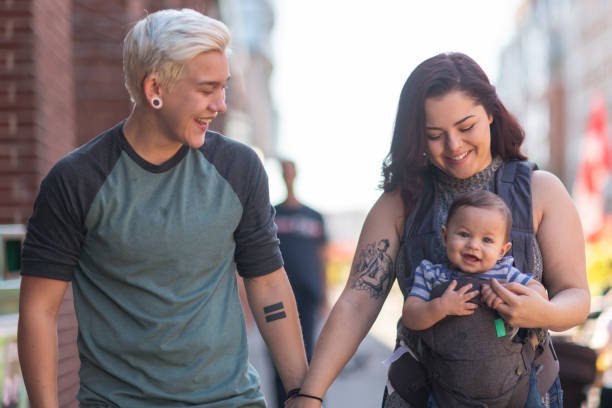Responding to Misgendering with Compassion and Confidence.
As a parent to a queer daughter and a trans son, responding with kindness and patience to misgendering - that is, using incorrect pronouns for someone - can be more difficult for me than it actually is for my children! My heart takes the incorrect pronoun use like a dagger. Honestly, even I find it challenging to know when a larger conversation with others should happen or the moment warrants a quick move-on after a brief correction.
One thing is certain, though. Responding with patience and compassion toward those who misgender others can make a meaningful impact as it sets a respectful tone and sets boundaries.
My trans teen recently had a teacher repeatedly misgender them, and the teacher responded by apologizing profusely over and over. This made my child feel uncomfortable and they just wanted to move on quickly. There doesn’t always need to be a big explanation. Saying, “I (or, if you’re an ally, gently correcting on your loved one’s behalf) go by (insert your pronouns here). Thanks for checking and respecting me!” can suffice. You can clarify without extra explanation and it’s short and non-judgmental.
It’s important not to over explain an LGBTQIA+ person’s identity when not relevant to the conversation because defining based on differences in gender or sexual orientation can make
folks feel like outsiders.
Modeling the behavior you want to see in others is a beautiful way of setting boundaries by saying, “Remember, their pronouns are (insert pronouns here).” If someone repeatedly ignores you or doesn’t understand it, bringing more attention to it is needed. An acquaintance asked me, “How are the girls?” when I saw her a couple of months ago. Instead of going into specifics and a drawn out explanation, I simply responded with “the kids are fine.” As a parent of trans and queer children, this is what keeps me feeling safe, especially because I know my children would want me to respond in this way. My oldest child recently had an experience with her partner where someone noted, “Oh, you’re two lesbians in a relationship.” Her partner responded with, “Not quite, but we’re dating,” to keep the mood light and to send the message that explaining their relationship wasn’t something to talk about.
Everyone should be respected and seen for exactly who they are, and misgendering can be hurtful and invalidating even by those well-meaning. If you misgender someone, acknowledge your mistake and apologize. Practice using the correct pronouns repeatedly until it becomes habitual, and if you need clarification on someone’s pronouns, just ask.

